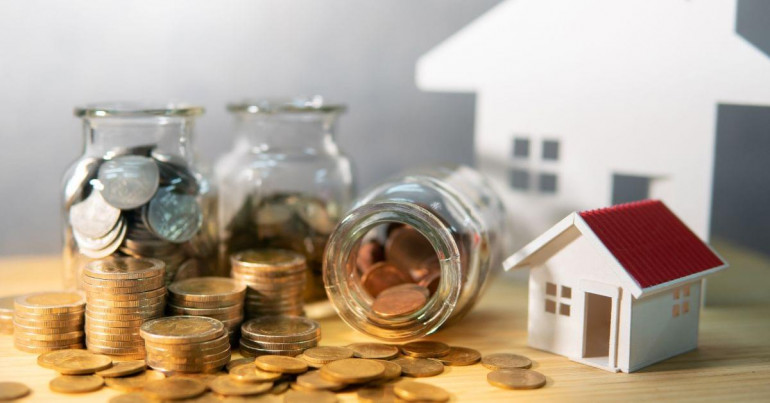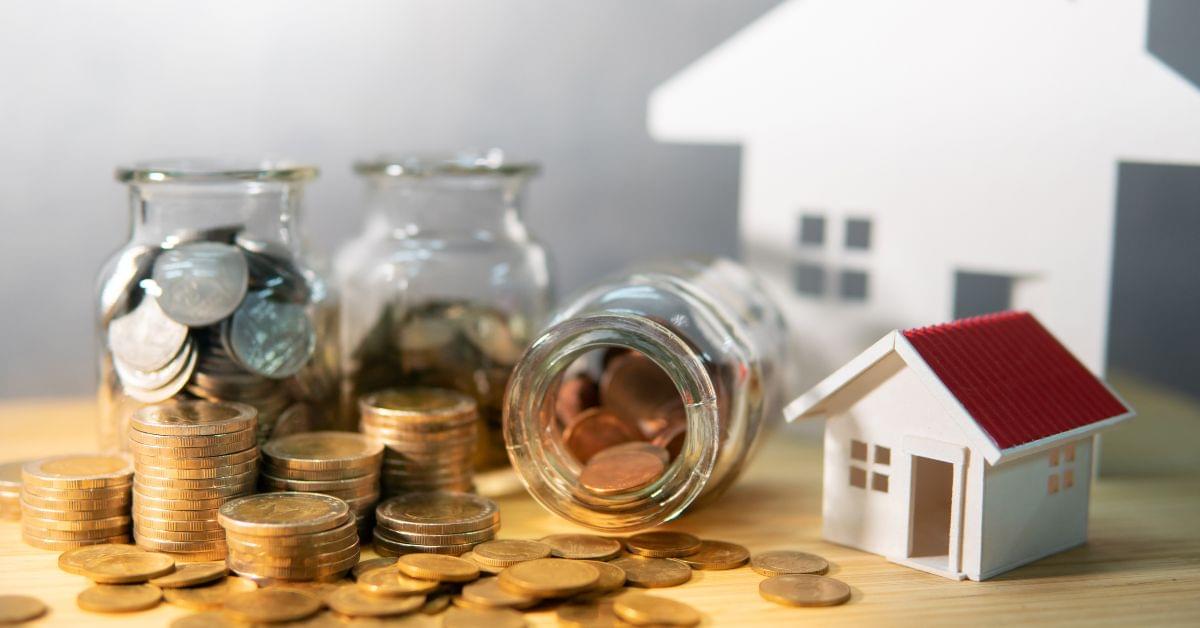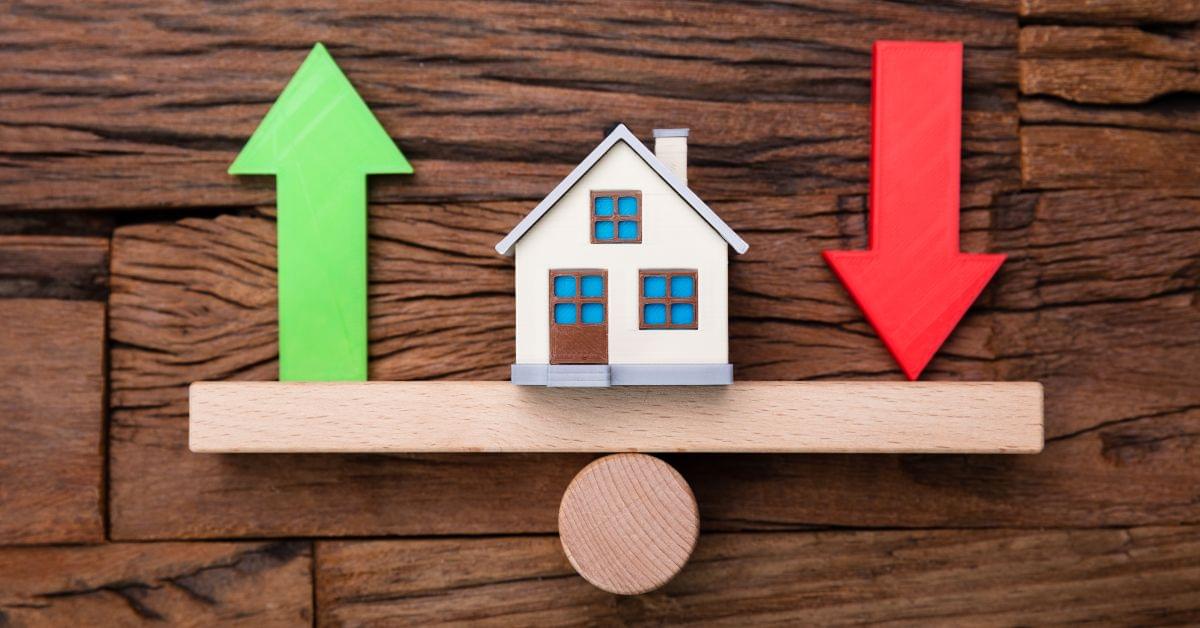
The property market has been the bedrock of the UK economy for decades. However, as interest rates have risen, the market has slowed significantly and house price growth has stalled.
In this article, we look at what is likely to happen to the property market if interest rates remain high for longer.

Rising mortgage costs
As everyone is well aware, rising interest rates have dramatically increased the cost of mortgages. Although the effect has abated since the onset of the mini-budget disaster under former Chancellor Liz Truss, mortgage rates remain elevated.
As a result, it is significantly more expensive for potential homebuyers to access finance, resulting in fewer purchases and a slowdown in the housing market, as well as increasing the amount of debt service required each month.
In the UK and the Nordic countries in particular, the housing market is particularly vulnerable to a prolonged period of high interest rates. This is because the proportion of variable-rate mortgages is much higher than in the US or Central Europe.
As a result, even 2-year fixed mortgages will continue to reset for buyers who bought in the last 2 years when prices were elevated, and mortgage costs for these borrowers will rise significantly.
Slowdown in house price appreciation
In this situation, it is not difficult to imagine that above inflation house price appreciation is likely to be a thing of the past decades as long as interest rates remain high. Moreover, house prices in Northern Europe, South Korea and New Zealand are already contracting dramatically.
The rise in borrowing costs, combined with the stagnation in house prices, has caused many potential buyers to change their plans. With house prices now stagnating and falling, potential buyers are more inclined to wait in anticipation of further falls in the coming months, rather than buy now.
With resigning interest rates, renting becomes more attractive
As long as inflation and interest rates remain high, even stale house prices pose a risk. While the nominal value of UK house prices has fallen only slightly, once inflation is taken into account, house prices have fallen significantly over the past twelve months.
The idea of buying a property with a mortgage at today’s rates only makes sense if you expect prices to continue to rise at a similar pace to the past few decades: the total debt service on a long-term mortgage with minimal equity can easily be more than double the purchase price.
By way of illustration, an average property bought for £250,000 with 10% equity and a 30-year mortgage at 5% will end up costing more than £450,000 including equity over the life of the mortgage. This example was calculated using the Moneysavingexpert mortgage calculator.
However, most buyers look at the upfront purchase price rather than the total debt service. But even by this measure, house prices are at all-time highs and have risen dramatically until recently.
In such a situation, it may make economic sense for many people to rent until interest rates have fallen to a level where the total debt service on a long-term mortgage is normalised.
As for variable rate mortgages, this is a gamble that may pay off: if interest rates fall rapidly again, buyers may get a windfall of lower payments after 2 years, but all the central bankers’ comments and the yield curve implications look more like wishful thinking than based on market expectations.
Rent controls
There has been increasing talk of rent controls in some European countries and in London as the rise in mortgage borrowing costs has filtered through to the rental market, with landlords seeking to pass on higher borrowing costs to tenants.
In the UK, such measures remain off the table for the time being. However, as we have seen with policy interventions in the energy market and the cost of living crisis, it is not inconceivable that rent controls could be introduced even in the UK if rental inflation remains high. It is clearly a political issue and would depend on the government in power and public acceptance of such measures.
Properties are as expensive as they last were in 1876
Historically, property in the UK is as expensive as it was in 1876, in terms of average price and median income multiple, according to research from Schroders.
But again, historical overvaluation is not a good indicator of where prices are headed, at least in the short term. It turns out that at the beginning of the 19th century, property was even more expensive by the same measure of affordability.
This seems to be one reason why even a lot of stress in the interest rate and mortgage markets does not worry homeowners who have already paid off their mortgage. They tend to see their home less as an investment account and more as a place to live. While a 20% drop in their stock portfolio over the past year or a lack of inflation compensation in their savings account may cause a touch of panic, a real loss in the value of their home does not make them move. On the other hand, buyers are also hesitant. As a result, buyer enquiries remain low.

Property market outlook
At present, most homeowners are under no pressure to sell, so prices have hardly fallen. Unless prices suddenly collapse, this is unlikely to change. Similarly, potential buyers are reluctant, given the higher cost of financing and uncertainty about whether price growth can continue as it has in recent decades.
With all these different dynamics at play, the most likely outcome is that the housing market will remain sluggish and less liquid, with the number and volume of transactions remaining low unless interest rates or prices, or both, fall.
Do you live abroad and are transacting in property in the UK? With CurrencyTransfer you can get competitive quotes from our FCA regulated partners to transfer and exchange currency in and out of the UK. Sign up on our platform today.
G.C. Wagner
Gustav Christopher is a writer specialising in finance, tech, and sustainability. Over 15 years, he worked in banking, trading and as a FinTech entrepreneur. In addition, he enjoys playing chess, running, and tennis.



